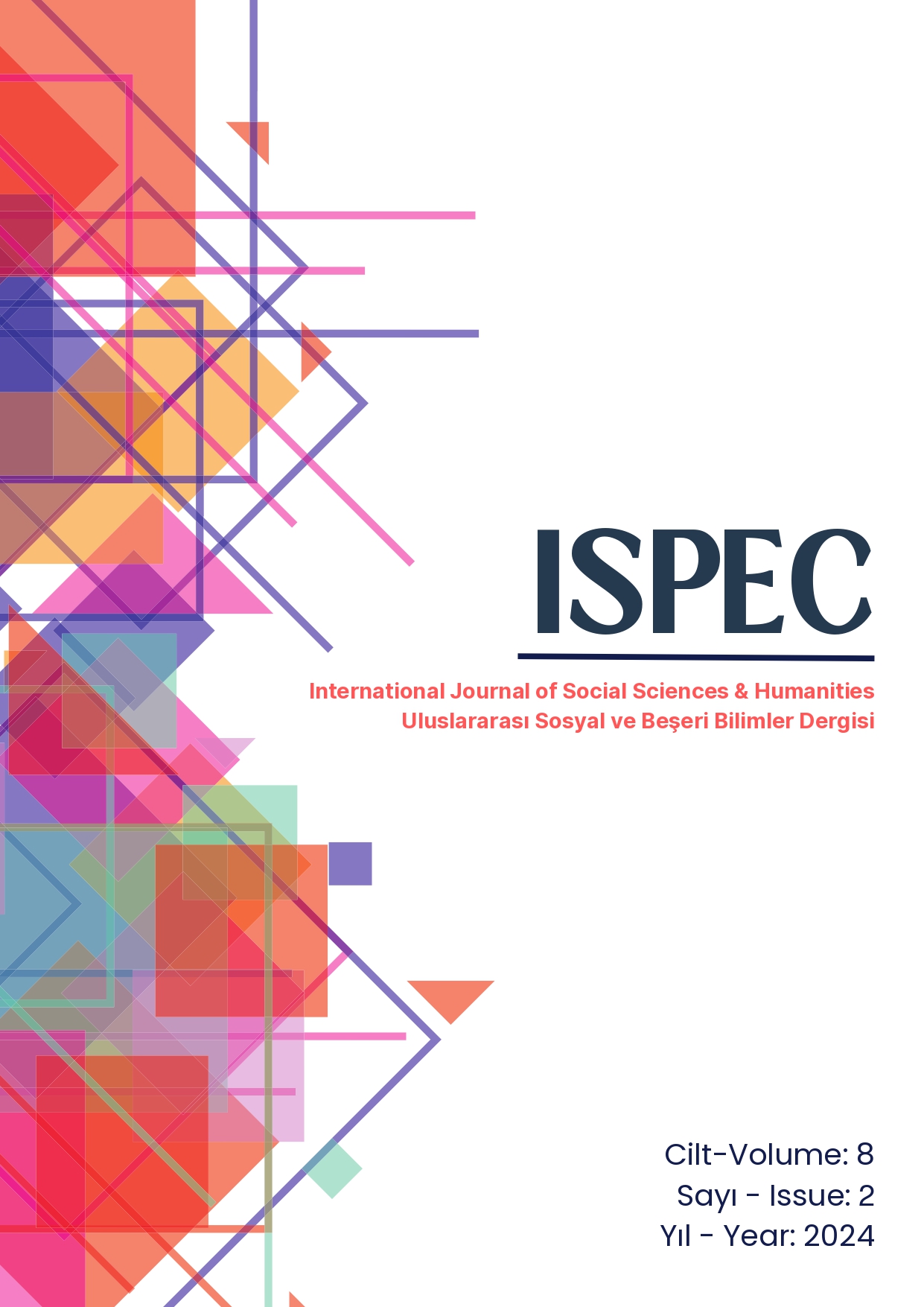A Research to Determine the Reasons of Quiet Quitting in Accommodation Businesses
DOI:
https://doi.org/10.5281/zenodo.12511881Keywords:
Quiet Quitting, Accommodation Businesses, EmployeesAbstract
The situation where employees take less responsibility in businesses, only fulfill the requirements of the job description and perform at a very low level for the business is referred to as quiet quitting. In accommodation businesses, which are more labor-intensive than other businesses, employees' tendency to quiet quitting can cause serious problems in businesses. In this context, the aim of the study is to reveal the reasons for quiet quitting and the possible effects of this situation on accommodation businesses. In addition, it offers some suggestions to prevent quiet quitting among employees in accommodation establishments. For this purpose, a national and international literature review was conducted. Accordingly, it has been determined that reasons such as lack of communication, lack of appreciation, low wages, limited career opportunities, and feeling of worthlessness lead employees to quiet quitting. It has been revealed that the quiet quitting of employees in accommodation businesses leaves the business behind its competitors, imposes additional costs on the business, and causes a decrease in service and product quality due to decreased productivity.
References
Arar, T., Çetiner, N. ve Yurdakul, G. (2023). Quiet Quitting: Building a Comprehensive Theoretical Framework. Journal of Academic Researches and Studies, 15(28), 122-138. https://doi.org/10.20990/kilisiibfakademik.1245216.
Bakshi, P. (2022). In Defence of Quiet Quitting Your Job. Refinery29. https://www.refinery29.com/en-gb/quiet-quitting-job (17.11.2023).
Brinkmann, R.D. and Stapf, K.H. (2001). Die Innere Kündigung aus der Sicht von Arbeitnehmern -Ergebnisse einer empirischen Untersuchung zur Inneren Kündigung beigenossenschaftlichen Bankinstituten und in der Öffentlichen Verwaltung. Personal- Zeitschrift für Human Resource Management, 53(12) 688-693.
Cohen, J. (2022). Quiet Quitting: The Newest Way to Strike Back against Corporate Greed. TMH The Miami Hurricane. https://www.themiamihurricane.com/2022/09/21/quiet-quitting-the-newest-way-to-strike-back-against-corporate-greed/ (23.11.2023).
Çimen, A.İ. ve Yılmaz, T. (2023). Sessiz İstifa Ne Kadar Sessiz. Sakarya Üniversitesi İşletme Enstitüsü Dergisi, 5(1), 27-33.
Daugherty, G. (2023). What is Quiet Quitting- and is it a Real Trend? https://www.investopedia.com/what-is-quiet-quitting-6743910 (26.01.2023).
Dill, K. and Yang, A. (2022). The Backlash against Quiet Quitting is Getting Loudi. The Wall Street Journal. https://www.wsj.com/articles/the-backlash-against-quiet-quitting-is-getting-loud-11661391232?mod=series_quit (23.11.2023).
Ercan, E. (2022). İş Dünyasında Yeni Kavram: Sessiz İstifa. Hayatın Ritmi. https://hayatinritmi.com.tr/is-dunyasinda-yeni-kavram-sessiz-istifa/ (15.12.2023).
Ellis, L. and Yang, A. (2022, 04 12). If Your Co-Workers Are ‘Quiet Quitting,’ Here’s What That Means. The Wall Street Journal. https://www.wsj.com/articles/if-your-gen-z-co-workers-are-quiet-quitting-heres-what-that-means-11660260608 (20.111.2023).
Formica, S. and Sfodera, F. (2022). The Great Resignation and Quiet Quitting Paradigm Shifts: An Overview of Current Situation and Future Research Directions. Journal of Hospitality Marketing & Management, 31(8), 899-907. https://doi.org/10.1080/19368623.2022.2136601.
Galanis, P. (2023). Quiet Quitting: A significant Threat for Healthcare Industry or an Inevitable Reaction of the Healthcare Workers? International Journal of Caring Sciences, 16(2), 512-513.
Gözlü, K. (2023). Tükenmişlik Bağlamında Yeni Bir Kavram Olarak Sessiz İstifa ve Sağlık Sektöründeki Etkileri, Meyad Akademi, 4(2), 213-241.
Güler, M. (2023). Çalışma Kültüründe Yeni Bir Kavram: Sessiz İstifa. Çukurova Üniversitesi Sosyal Bilimler Enstitüsü Dergisi, 32(1), 247-261.
Günay, M. (2023). Sessiz İstifa Etkisi Artıyor. Cumhuriyet. https://www.cumhuriyet.com.tr/ekonomi/sessiz-istifanin-etkisi-artiyor-2020275 (20.12.2023).
Hart, H. (2022). Why We are (still) Talking About Quiet Quitting. Forbes. https://www.forbes.com/sites/hannahart/2022/09/23/why-we-are-still-talking-about-quiet-quitting/?sh=2979f1056b40 (23.11.2023).
Hetler, A. (2022). Quiet Quitting Explained: Everything You Need to Know. https://www.techtarget.com/whatis/feature/Quiet-quitting-explained-Everything-you-need-to-know (09.11. 2023).
Höhn, R. (1983). Die İnnere Kündigung im Unternehmen- Ursachen, Folgen, Gegenmaßnahmen. Bad Harzburg: Verlag Für Wissenschaft, Wirtschaft und Technic.
Ilgın, S. (2022). 2022’nin Popüler akımı sessiz istifa nedir? İstanbul Boğaziçi Enstitüsü. https://istanbulbogazicienstitu.com/sessizistifa-nedir (25.12.2023).
Kandemir, S. (2023). Gürültülü Bir Sessizlik: Sessiz İstifa. Hiwell. https://www.hiwellapp.com/blog/sessiz-istifa-psikolojisi (20.10.2023).
Kobak, Ö. (2023). Sessiz İstifa Kavramına İlişkin Bir Model Önerisi. Yayımlanmamış Yüksek Lisans Tezi. İstanbul: Yıldız Teknik Üniversitesi Sosyal Bilimler Enstitüsü.
Kobal, G. ve Batı, S. (2022). Eski Bir Alışkanlık, Yeni Bir Akım: Sessiz İstifa Yaşayanlar Anlatıyor, Uzmanlar Yorumluyor. Hürriyet. https://www.hurriyet.com.tr/gundem/eski-bir-aliskanlikyeni-bir-akim-sessiz-istifa-yasayanlar-anlatiyor-uzmanlar-yorumluyor-42127939 (15.12.2023).
Kozak, N. (2012). Turizm Pazarlaması. Ankara: Detay Yayıncılık.
Kudhail, P. (2022). Quiet Quitting: The Workplace Trend Taking Over TikTok. BBC News. https://www.bbc.com/news/business-62638908 (23.11.2023).
Kuşoğlu, İ. (2022). İş Hayatında Yeni Akım: Sessiz İstifa. Haber Türk. https://www.haberturk.com/is-hayatinda-yeni-akim-sessiz-vazgecis-3513607 (20.12.2023).
Mysoft, (2022). İş Dünyasında Son Trend: Sessiz İstifa. https://www.mysoft.com.tr/is-dunyasinda-son-trend-sessiz-istifa (25.12.2023).
Olalı, H. ve Korzay, M. (1993). Otel İşletmeciliği. İstanbul: Beta Basım Yayım Dağıtım.
Özcan, M. (1994). Konaklama İşletmelerinde İnsan Kaynakları Muhasebesi. Turizm Yıllığı, Türkiye Kalkınma Bankası.
Özel, Ç. H. (2012). Otelcilik Endüstrisi, (Ed.) M. Akoğlan Kozak, Otel İşletmeciliği, Ankara: Detay Yayıncılık.
Pearce, M. (2022). Gen Z didn’t Coin ‘Quiet Quitting’- Gen X did. Los Angeles Times. https://www.latimes.com/entertainment-arts/story/2022-08-27/la-ent-quiet-quitting-origins (23.11.2023).
Rosalsky, G. and Selyukh, A. (2022). The Economics Behind ‘Quiet Quitting’- and What We Should Call it Instead. NPR. https://www.npr.org/sections/money/2022/09/13/1122059402/the-economics-behind-quiet-quitting-and-what-we-should-call-it-instead (23.11.2023).
Savaş, B.Ç. ve Turan, M. (2023). Sessiz İstifa Ölçeği: Geçerlik ve Güvenirlik Çalışması. The Online Journal of Recreation and Sports, 12(3), 442-453.
Scott, E. (2022). Could ‘Quiet Quitting’ Your Job be the Answer to Burnout? What You Need to Know. Metro. https://metro.co.uk/2022/07/29/could-the-quiet-quitting-trend-be-the-answer-to-burnout-what-you-need-to-know-17085827/ (23.11.2023).
Seçer, B. (2009). İçsel İşten Ayrılma: Nedenleri, Ölçülmesi ve Önlenmesi. A. Keser, G. Yılmaz, S. Yürür içinde, Çalışma Yaşamında Davranış Güncel Yaklaşımlar Kocaeli: Umuttepe Yayınları.
Toker, B. (2007). Demografik Değişkenlerin İş Tatminine Etkileri: İzmir'deki Beş ve Dört Yıldızlı Otellere Yönelik Bir Uygulama. Doğuş Üniversitesi Dergisi, 8(1), 92-107.
Tong, G. C. (2022). Is ‘Quiet Quitting’ a Good Idea? Here’s What Workplace Experts Say. CNBC Make It. https://www.cnbc.com/2022/08/30/is-quiet-quitting-a-good-idea-heres-what-workplace-experts-say.html (23.11.2023).
Yıkılmaz, İ. (2022). Quiet Quitting: A Conceptual Investigation. Anadolu 10th International Conference on Social Science, Diyarbakır, Türkiye.
Yıldız, S. ve Özmenekşe, Y.O. (2022). Kaçınılmaz Son: Sessiz İstifa. Al-Farabi International Journal on Social Sciences, 7(4), 14-24.
Downloads
Published
How to Cite
Issue
Section
License
Copyright (c) 2024 ISPEC International Journal of Social Sciences & Humanities

This work is licensed under a Creative Commons Attribution-NonCommercial-NoDerivatives 4.0 International License.






